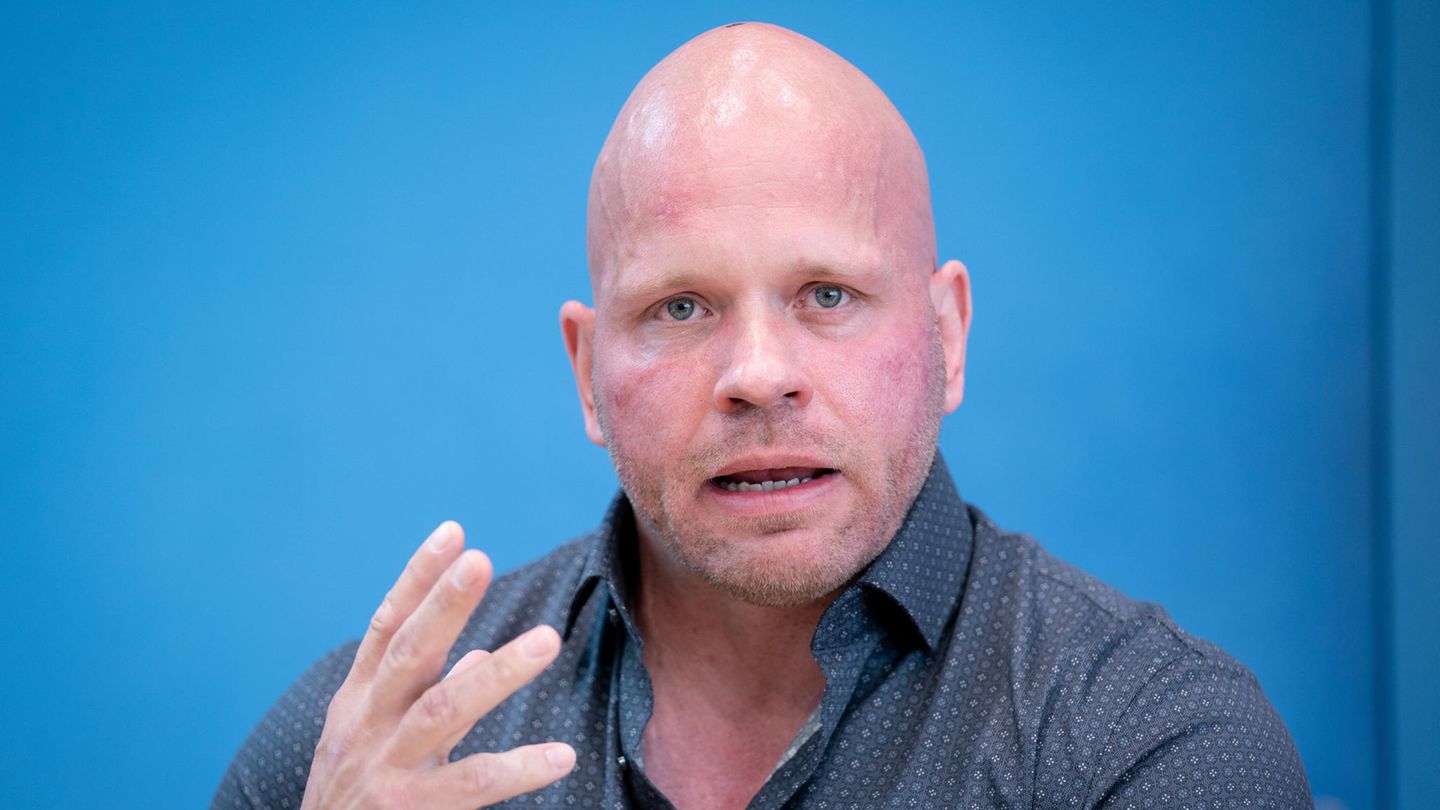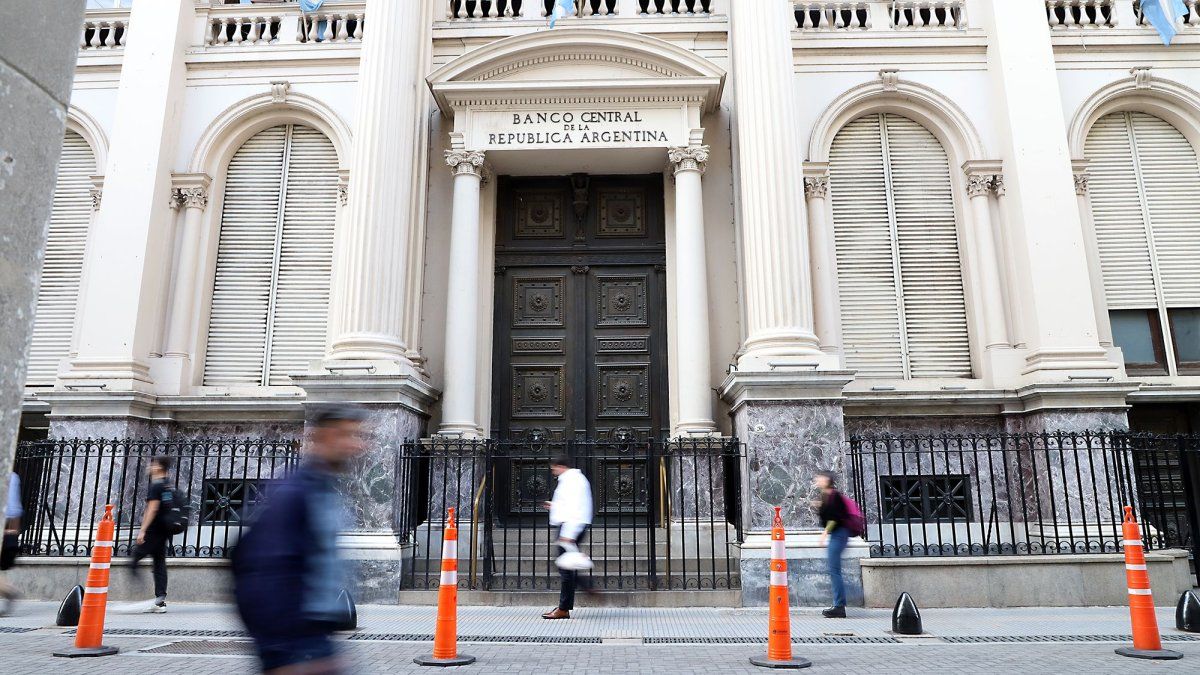Can the clinics and intensive care units withstand the pressure of the fourth corona wave? There are enough ventilators and beds, says intensive care nurse Ricardo Lange. What is wrong is the staff. He warns: The emergency is worse than in the waves before.
Mr. Lange, the still incumbent Federal Health Minister Jens Spahn stated at the end of February that the health system in Germany was “at no time” overloaded in view of the pandemic. Germany was just on the way out of the second wave. Do you share this view?
The statement annoys me enormously. It’s just not true. Isn’t it too much if patients in intensive care have to be moved to other areas of the hospital so that a bed becomes free for another seriously ill person? What if, after an accident or a heart attack, patients are driven from clinic to clinic before someone can admit them? Or when operations that can be planned are postponed, as was the case at the end of 2020 and is currently happening again? Aren’t all of these examples indicative of an overburdened health system?
You work as an intensive care nurse on a temporary basis in various Berlin clinics, especially those with corona patients. Give us an insight: What is the current situation on the stations in the middle of the fourth wave?
The shortage of personnel is great and worse than in the waves before. That aggravates the situation. Many intensive care staff have left their jobs or have moved to other areas of the clinic, where they are less exposed to stress and strain. As a result, there is a shortage of staff in the intensive care units and there are far fewer free beds than before. And by that I don’t mean beds that are standing around in rooms. We have enough of them. I mean beds that can be looked after by trained specialists. That’s the big problem.
What makes the carers leave their job?
The hopelessness. At the beginning of the pandemic, many nurses still had the illusion that something was finally going to change. That politics are addressing the personnel shortage, that working conditions are improving. Even I was so naive and believed in it, because after all everyone was looking at us. People stood on balconies to clap for us. And now, after the general election and in the middle of the fourth wave, that hope has fizzled out. There is no more light at the end of the tunnel. Those who are still there are trying to keep the shop running and step in more often than usual because they have to compensate for the lack of staff. People are physically and mentally exhausted. The motivation is down.
Corona exacerbates staff shortages in intensive care
A current survey by the German Hospital Institute () highlights the situation in intensive care. According to this, just under three out of four clinics surveyed state that they have fewer intensive care staff available than at the end of 2020 due to layoffs, internal job changes or reductions in working hours.
86 percent of the houses were not always able to fully operate their intensive care beds this year due to a lack of nurses, according to the survey. A good half of the clinics surveyed stated that this was “often” or “very often” the case. Three out of four clinics surveyed also report that, since the beginning of the year, they have increasingly been using additional nursing staff from normal wards in the intensive care units, in order to ensure the care of Covid 19 patients in particular. For a third this is “often” or “very often” the case. 233 hospitals nationwide took part in the representative survey.
“In many hospitals, the migration leads to the fact that the available intensive care beds cannot be fully operated, at least for a time, or that the number of operable intensive care beds is declining overall,” the survey said. The change in the Nursing Staff Lower Limits Ordinance, which since the beginning of the year has provided for stricter minimum staffing or staffing keys in intensive care, is further exacerbating the situation.
Most corona patients in intensive care units are not vaccinated, the DKI continues. The institute therefore sees a possibility to “noticeably” relieve the intensive care staff and intensive care units in a higher vaccination rate.
At the same time, the number of cases is high and the intensive care units are also filling up. The medical association in Saxony is already warning of a possible triage. The clinics would then have to decide who can still be helped if there are more patients than free beds. Are you afraid of such a situation?
For me it would be a disaster, a gruesome scenario. I hope we never get to that point. But the sad thing is: If clinics had to use triage under the pressure of the current corona wave, it would be because there was a lack of staff and politicians did not listen to the nursing staff’s call for help. We’re not talking about beds that don’t exist. We’re not talking about ventilators that couldn’t have been plugged in. We’re talking about beds, intensive care beds that are empty because there is no staff. And I would like to emphasize: This already leads to bottlenecks in clinics, which perhaps are not generally considered triage, but which make prioritization necessary.
Can you explain that in more detail?
Most people understand triage to be a situation in which clinics are completely overloaded and the teams on site have to decide who is allowed to live and who has to die. But triage starts with the smaller, more subtle – by the way, even before Corona, but even more so since Corona. It is also a form of triage when ward doctors have to consider which patient they can best remove from the intensive care unit in order to create a free bed for another seriously ill patient. In every ward there is a so-called “joker” patient: a person who actually belongs in the intensive care unit, but who is moved away in an emergency, simply because his or her condition is most likely to allow it. These transfers happen every day. People just have to know that.
Where is this patient going?
On a provisional intensive care bed. For example, some clinics use the recovery room of an operating room for this. So-called monitoring stations are also being converted into intensive care units. Patients who are in a condition that is not bad enough for the intensive care unit, but who can no longer be in a normal ward, usually lie in a monitoring ward. And that is where intensive care patients are brought, some of whom are on dialysis, some of whom are receiving anesthetic drugs, who are in an artificial coma, and and and. These are patients who actually belong in an intensive care unit.
What does that do to you?
It’s a stupid feeling, sometimes frightening, when I know that the patient’s condition is actually not good, but that he has to be relocated. I am very happy that we caregivers make these decisions – Who do we take in? Who is being relocated? – do not have to meet, but the ward doctors.
How do you see the coming weeks?
Bitter, I can’t say it any other way. The second summer has now passed without politicians bothering about the upcoming winter. There was an election campaign and it was pretended that there was no pandemic – although a Mr. Wieler and a Mr. Drosten, i.e. leading experts, have repeatedly warned that the numbers will rise again in winter. The virus was just allowed to come. I also don’t understand why we still have to discuss the nursing staff shortage – in the second year of the pandemic. All measures that were taken to contain the pandemic have always been justified by the fact that the health system must be protected from overload. And where you really have to attack – the bottleneck maintenance – simply nothing is done. This is maddening.
What would you like to say to federal and state politicians?
There was a time when everyone thought about where to get new nursing staff. We have long since passed this point. We must first try to keep the staff who are still here. There is no second row behind us, there is no substitute. We’re the only ones left When we’re gone, we’re gone.
Source From: Stern




